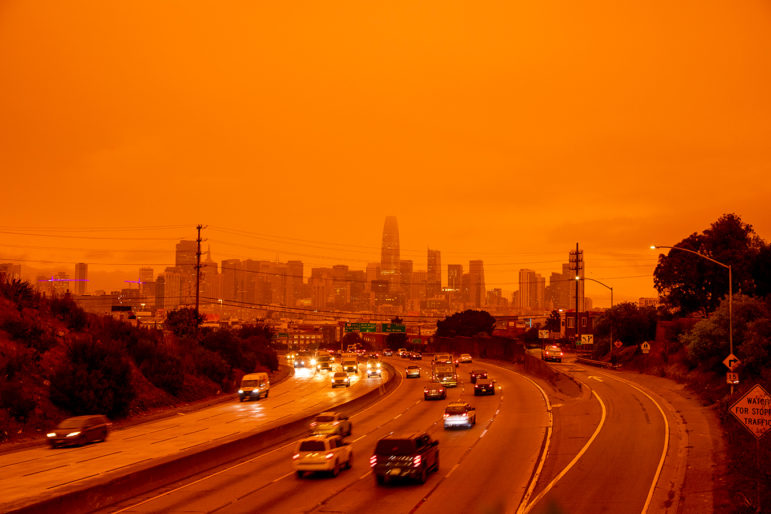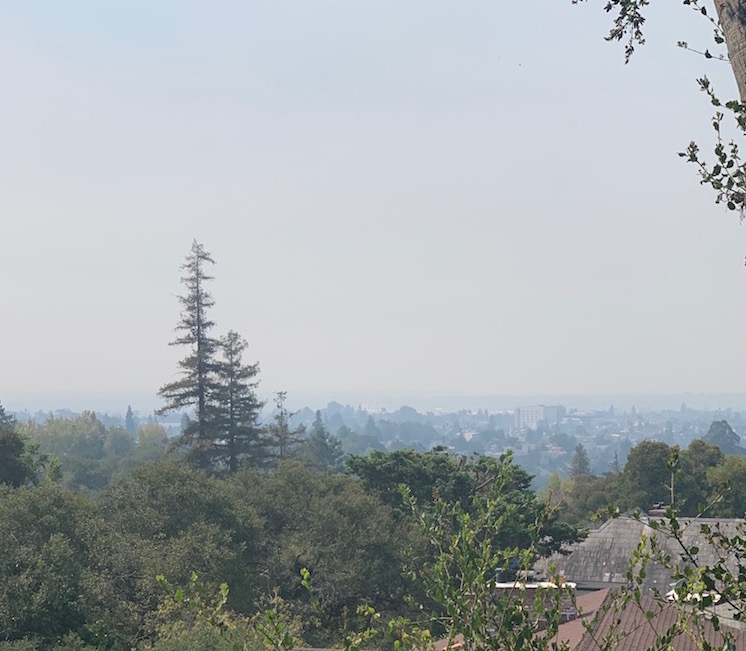With hotter temperatures and more wildfire risks, how is air quality faring in the Bay Area?
So far, it’s hard to say, said Juan Romero, spokesperson for the Bay Area Air Quality Management District.
Air quality depends on temperatures and pollution but also wind directions and many other factors.
In the summer, air quality becomes unhealthy because the hot temperatures trap pollution and smog from cars and other polluters close to the ground. In fact, more than half of pollutants that impact air quality come from motor vehicles and other mobile sources, according to the air district’s 2020 report.
Wildfires just add to the already increased particulate matter in the air.
Last year during the pandemic, even though traffic on Bay Area roads decreased by 50 to 85 percent, Romero said, there were still many days where air quality was dangerous primarily because of large wildfires.

High smoke levels turned the sky an eerie orange on Sept. 9, an event that made national news and scared people around the country. Though, “as ominous as it looked, the air quality on that day was not the worst,” Romero said.
The orange skies were a result of rays being filtered through the clouds and through the smoke. “Most of the smoke was higher up,” Romero said. “Funny enough, in the days after, when the skies seemed clearer, it was actually much more dangerous.”
It was a unique phenomenon, but it is something that could happen again in the Bay Area, he said.
There isn’t really an area of the Bay Area that generally has better air quality, regardless of whether it is more urban or rural.
“Think of the Bay Area as like a giant bowl that we all live in,” Romero said. “We do get questions a lot of, ‘if I live in one area, am I really being affected by the air quality in a different area?’ and the answer is probably, or it’s likely.”
This is because winds can shift particulate matter all around the region, among many other reasons, Romero said.
Over the next few months, the biggest threats to air quality will be from heat waves and wildfires.
So, what can residents do to prepare, reduce emissions and know what to expect? Ask Juan Romero directly and tune in to the live chat with the Bay Area Air Quality Management District on Wednesday, July 14 from noon to 1 p.m.
